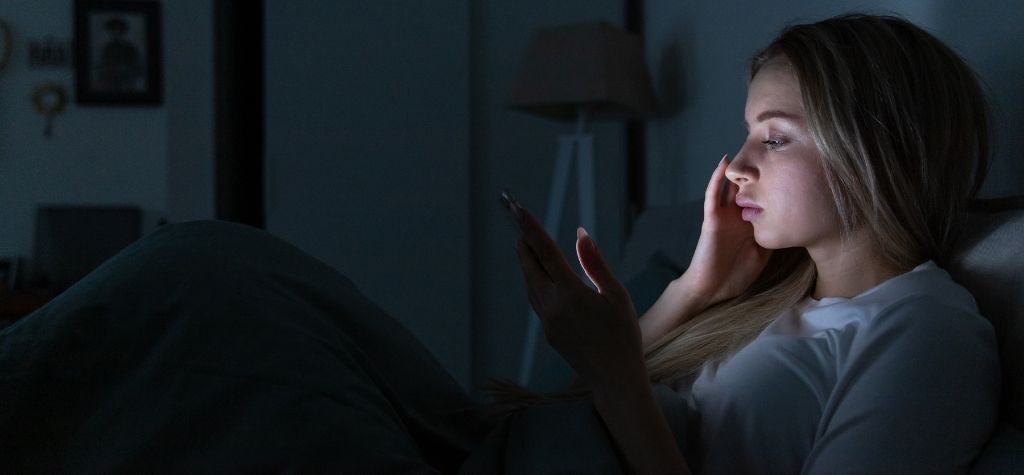Do you wake up each morning feeling like your vision has taken a hit overnight? If your eyes feel dry, blurry, or strained right after getting out of bed, you’re not alone. Many people experience this phenomenon—especially as our lifestyles become increasingly screen-heavy and sleep-deprived.
The good news? Most causes of morning vision issues are temporary and fixable. In this guide, we’ll uncover exactly why your eyesight feels worse every morning and what you can do to fix it—for good.

The Mystery of Morning Vision Problems
Mornings can be rough on the eyes. From struggling to focus clearly to experiencing temporary blurriness, many people notice a decline in their visual clarity right after waking.
Temporary Blurriness After Waking Up
One of the most common reasons for morning blurry vision is corneal swelling. While you sleep, your eyes don’t blink, and oxygen flow is reduced—especially if you sleep with your eyes partially open or wear contact lenses. This can cause the cornea (the clear outer layer of the eye) to swell slightly, distorting your vision.
Pupil Adjustment and Light Sensitivity
Another factor? Your pupils. They dilate in darkness to let in more light while you sleep. When you wake and suddenly expose your eyes to bright light, they need time to adjust. During this adjustment, vision can feel unclear or overly sensitive to light.
Underlying Biological Reasons
Morning vision issues aren’t just random—they’re rooted in natural changes your body goes through while you sleep.
Body Fluid Redistribution
Lying down for hours at a time causes body fluids to shift. This includes the eyes, where extra fluid can build up in the cornea, leading to a slight bulge that alters how light bends as it enters your eyes. As you sit and move around in the morning, this fluid slowly redistributes, and your vision clears up.
Decreased Tear Production at Night
Tears keep your eyes moist and help maintain clear vision. At night, tear production naturally decreases, especially if you’re not blinking often or are in a dry environment. This results in dry, uncomfortable eyes and temporary blurriness upon waking.
External Contributors to Morning Vision Issues

Beyond biology, your environment and nighttime habits play a big role in how your eyes feel each morning.
Bedroom Humidity and Air Quality
Sleeping in a room with dry air—common with heaters or fans running—can cause your tear film to evaporate faster. This leads to morning dryness and irritation. Using a humidifier can greatly improve eye comfort.
Screen Use Before Bedtime
If you scroll your phone or watch TV right before bed, you’re exposing your eyes to blue light. This not only suppresses melatonin production, disrupting your sleep cycle, but also reduces the time your eyes have to heal overnight. This can leave them feeling tired and strained in the morning.
Chronic Conditions That Impact Vision in the Morning
Sometimes, the cause goes deeper. Ongoing health conditions can affect how your vision feels each morning.
Dry Eye Syndrome and Allergies
If you have dry eye syndrome, your tear glands may not produce enough tears, especially at night. This makes mornings particularly uncomfortable. Allergies can also cause eye inflammation and irritation while you sleep, leading to redness and blurry vision when you wake up.
Diabetes and Fluctuating Sugar Levels
People with diabetes may experience blurred vision in the morning due to shifts in blood sugar levels. These fluctuations can cause the lens in the eye to swell or contract slightly, affecting focus.
The Real Fix: Steps to Improve Morning Vision

Now that we know what causes morning vision issues, let’s talk solutions. These are simple but powerful ways to support your eyes overnight and wake up feeling refreshed and clear-eyed.
Pre-Sleep Vision Hygiene Habits
- Limit screen time before bed (at least 30–60 minutes).
- Use night mode or blue light filters on devices.
- Keep your bedroom dark and cool to support melatonin production.
- Avoid caffeine and heavy meals before bed, which can disrupt sleep.
Hydration, Diet, and Humidifiers
- Drink water throughout the day to support tear production.
- Use a humidifier at night to keep air moist.
- Eat omega-3 rich foods (like salmon, flaxseed) to help with dry eye relief.
Eye Drops and Warm Compresses
- Use lubricating eye drops (without preservatives) before bed or after waking.
- Apply a warm compress to your eyes in the morning to increase oil gland function and relieve dryness.
When to Seek Professional Help
While morning eye issues are common, they shouldn’t be ignored if they’re persistent.
Persistent Symptoms and Eye Exams
If you notice ongoing blurry vision, pain, or changes in vision that don’t improve within an hour of waking, consult your eye doctor. You may need tests to check for glaucoma, cataracts, or other issues that require treatment.
Simple Habits for Long-Term Vision Health

Small changes in your daily routine can go a long way in keeping your eyes healthy and your mornings clear.
Balanced Screen Time and Breaks
- Follow the 20-20-20 rule: Every 20 minutes, look at something 20 feet away for 20 seconds.
- Take regular breaks from digital devices.
- Blink frequently to refresh your tear film.
Eye-Friendly Nutrition and Sleep
- Get 7–9 hours of quality sleep each night.
- Include leafy greens, eggs, and citrus fruits in your diet.
- Limit sugar and processed foods, which may increase inflammation.
Frequently Asked Questions (FAQs)
1. Why is my vision blurry every morning?
Most likely due to dry eyes, corneal swelling, or fluid retention while sleeping.
2. Can blue light from screens affect my morning vision?
Yes, it can delay sleep and reduce eye recovery overnight, causing strain in the morning.
3. What can I do right after waking up to improve my vision?
Use artificial tears, splash your face with cool water, and let your eyes adjust gradually to light.
4. Is morning blurriness a sign of a serious condition?
Not usually, but persistent symptoms could indicate dry eye syndrome or even diabetes.
5. How can I prevent dry eyes overnight?
Use a humidifier, apply lubricating drops, and avoid sleeping with a fan blowing at your face.
6. When should I see a doctor?
If you experience pain, persistent blurriness, or sudden vision changes, see an optometrist.
Conclusion: Clearer Mornings Ahead
Morning vision problems are more common than ever, especially with modern habits and technology use. But understanding the causes—and making a few smart changes—can restore your clear, comfortable vision from the moment you wake up. With a better sleep routine, improved eye care, and the right environment, clearer mornings are just around the corner.

